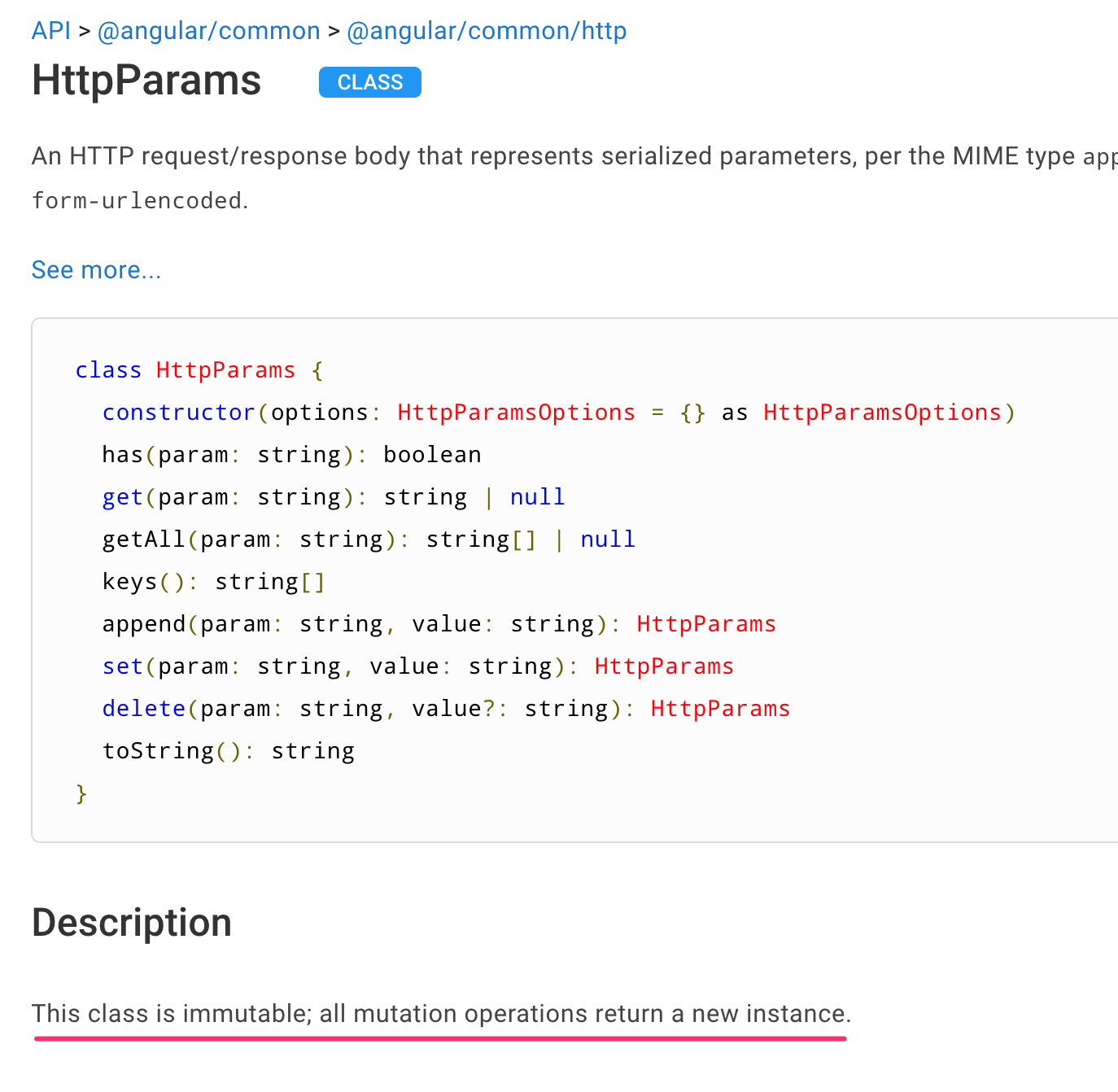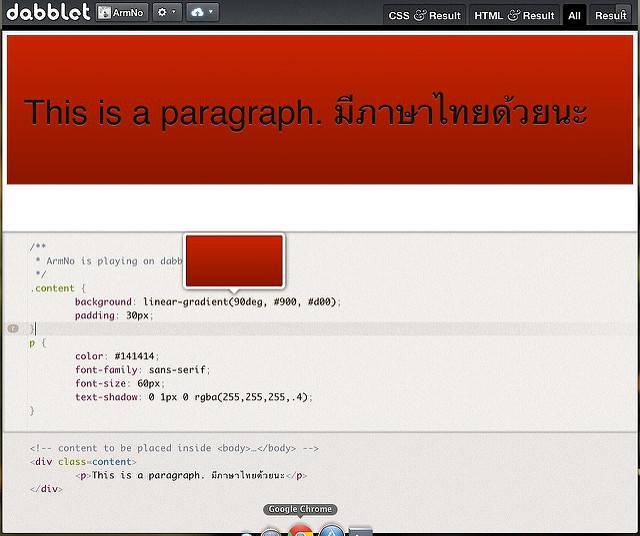Today I learned how to create a URL with query string parameters with HttpParams class in Angular.
I wanted to construct a URL with some query string parameters like:
https://api.something.com?id=someid&name=johndoe
I tried:
import { HttpParams } from '@angular/common/http';
...
const baseURL = 'https://api.something.com';
const params = new HttpParams();
params.set('id', 'someid');
params.set('name', 'johndoe');
const fullURL = `${baseURL}?${params.toString()}`;
console.log({ fullURL });The URL didn’t contain any parameters.

But when I chained .set() with new HttpParams(), it works.
const params = new HttpParams()
.set('id', 'someid');
.set('name', 'johndoe');
const fullURL = `${baseURL}?${params.toString()}`;
console.log({ fullURL });
My gotcha moment was then I found out that HttpParams class in Angular is immutable.

This means params.set() method doesn’t modify an existing params object —
it returns a new HttpParams instance.
The same goes to append() and delete() methods.
append(param: string, value: string): HttpParams;
set(param: string, value: string): HttpParams;
delete(param: string, value?: string): HttpParams;So if I want the params object with a new parameter in it,
I have to put it in a variable, or reassign to itself.
let params = new HttpParams();
params = params.set('id', 'someid');
params = params.set('name', 'johndoe');It is opposed to the native URLSearchParams object,
or the deprecated URLSearchParams class in @angular/http module,
which are both mutable.
Why Immutable?
I looked up on Google search to find why Angular team decided to make HttpParams class immutable.
I found this post from Sparkles Blog
which leads to the official document about immutability of HttpRequest and HttpResponse classes.
[…] They are immutable for a good reason: the app may retry a request several times before it succeeds, which means that the interceptor chain may re-process the same request multiple times.
If an interceptor could modify the original request object, the re-tried operation would start from the modified request rather than the original. Immutability ensures that interceptors see the same request for each try.
Source - Http Guide, Angular.io
Then it is kind of make sense too if the HttpParams class should be also immutable.
It just feels a bit strange though when a .set() method doesn’t actually set something to the caller object.
However, we still cannot always assume that everything is immutable,
as mentioned in another API document page:
Instances of HttpRequest class should not be assumed to be immutable.
Updated: This is no longer true. Now in the docs they stated instances of HttpParams should be assumed to be immutable.
Hmm.. 🤔

Related posts

